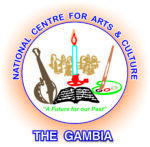Project Description
Literature writing and publishing industry in the country is vibrant and growing. Until the 1960s, there was not much Gambian literary writing in English due to the poor educational attainment during colonial period. However, from the mid-1960s, Lenrie Peters (1932-2009) a UK trained surgeon published his first novel The Second Round (Heinemann, 1965) and this book is seen as the flame which ignited modern Gambian literature in English. Peters was in the same generation as Soyinka, Achebe and Okigbo. His themes were mainly on colonial rule and the foibles and failures of the immediate post-independence African regimes. Mrs Hannah Jawara aka Ramatulie Kinteh, wrote several well acclaimed plays in the early 1960s while she was First Lady, the consort of Sir Dawda Kairaba Jawara, Gambia’s first President. She was one of Black Africa’s first published women writers. Gabriel Roberts’ plays were broadcast, performed by the BBC African Service in 1970, and later published in the prestigious African Writers’ series. In the 1970s, a new wave of literary writings emerged in Bathurst (the old name for Banjul) the Gambian capital in the form of literary magazine called “Ndaanan”, Wollof word for Champion.
When Ndaanan closed in 1976, there was another long furlough in Gambian literary writings till the 1980s when a new corps of writers such as Swaebou Conateh, Nana Grey Johnson and Tijaan Sallah emerged to animate the literary milieu in the country. These writers although highly determined and talented had to confront the fact of lack of local publishing houses and poor distribution (there was only one bookshop in the country) and low literacy. Albeit, other Gambians in the diaspora like Ebou Dibba published (Chaff on the Wind and Fafa) and Baba Sillah a blind man also published (When the Monkey Talks).
The emergence of the first regular daily newspaper in Banjul in 1992, the Daily Observer, generated another generation of writers who now published prose, poetry and essays in the pages of the daily newspaper. Sheriff Bojang, Baba Galleh Jallow, Mariama Khan, Hassoum Ceesay, Ebou Gaye could be counted among this Daily Observer generation. Most of them have gone onto become accomplished writers and authors since the early 2000s.
Publishing Industry:
For a long time, there was no professional book publishing outfit outside the government owned Printing Department. In the early 2000s, Fulladu Publishers established shop as the first professional publisher in the country taking on many new and established writers in literature, history, school textbook etc. Since then new publishing companies have emerged like Sukai Mbye Bojang of Educational Services, Baobab Printers etc. and self-publishers like Patience Sonko Godwin, Hamadi Secka, Momodou Sabally etc… Gambians continue to write their life experiences in prose, poetry and play; also, aspects of our history, culture and geography are being written and published by Gambians. However, the publishing industry remains largely untapped due to financial and capacity challenges such that authors have to handle the marketing of the published works. The Gambia’s rich oral literature in the form of stories, proverbs, fables etc. is still largely untapped and remains a huge reservoir of the collective memory of the people.
The National Centre for Arts and Culture Act, Copyright Act and Gambia Library Act all require publishers and printers to submit copies of works as deposits. The Copyright Act of 2004 will assist in the strengthening of the book publishing industry as it secures firmly the intellectual rights of writers and publishers. Besides providing this vital legal framework for writers and publishers, the government’s Ministry of Basic Education also promotes the reading of books by Gambian authors in schools. In order to make Gambians continue to chronicle their experiences in literature, a robust book publishing industry would be nurtured. Also, reading culture would be revived by promotion of Gambian literature and writings in our schools and colleges to give exposure to local talent, and the building of Regional and Town libraries. A literary award would be established to reward leading Gambian writers and authors.
The literary fraternity has been measuring tremendous successes within the past 3 years through The Writers Association; authors have published and launched several books with a significant rise in female and young writers. A day for the writers is being culled aside as part of a calendar of events for the years, where books can be reviewed with recitations of poetry and so on. The objective is to rejuvenate the reading culture of Gambians, showcase their work and enhance our literary cadres.
To achieve these objectives our main strategic partner is the Writers’ Association of the Gambia (WAG) which was established in 2009 with the following objectives:
- Promote, encourage and facilitate creative and other technical writing in The Gambia;
- Promote links among Gambian writers to enhance their collective and individual literary capacities, productivity and interests, nationally and internationally;
- Promote the writing of technical, research and school books and materials for the Gambia;
- Co-ordinate the publication and dissemination of literary texts by Gambians;
- Establish high standards in the writing, production and publication of texts from Gambian writers residing in The Gambia;
- Foster and enhance the patriotic and constructive role of Gambian and other resident writers in national development;
- Ensure the protection by law of the works and originality of Gambian writers, in particular, and of other writers in The Gambia, in general;
- Promote and protect the intellectual property rights of writers and monitor the stringent application of Copyright Laws of the Gambia;
- Facilitate documentation and preservation of all published materials by Gambian writers and when possible archiving them.
- Present the Dr. Lenrie Peters Memorial Lecture & Award annually to a deserving author and other incentives to writers.
- To do all things that help to promote the aims and objectives of the associations.

